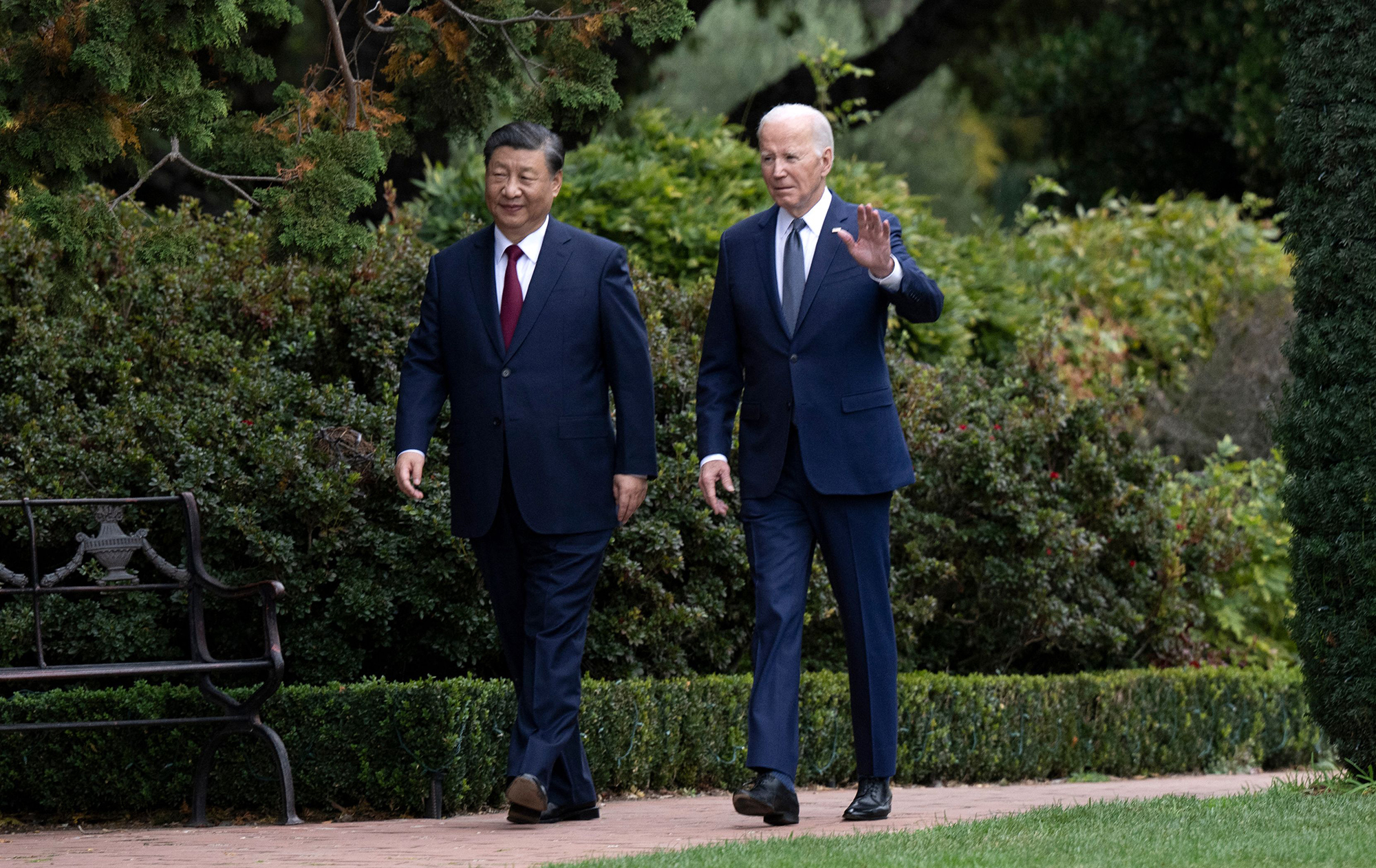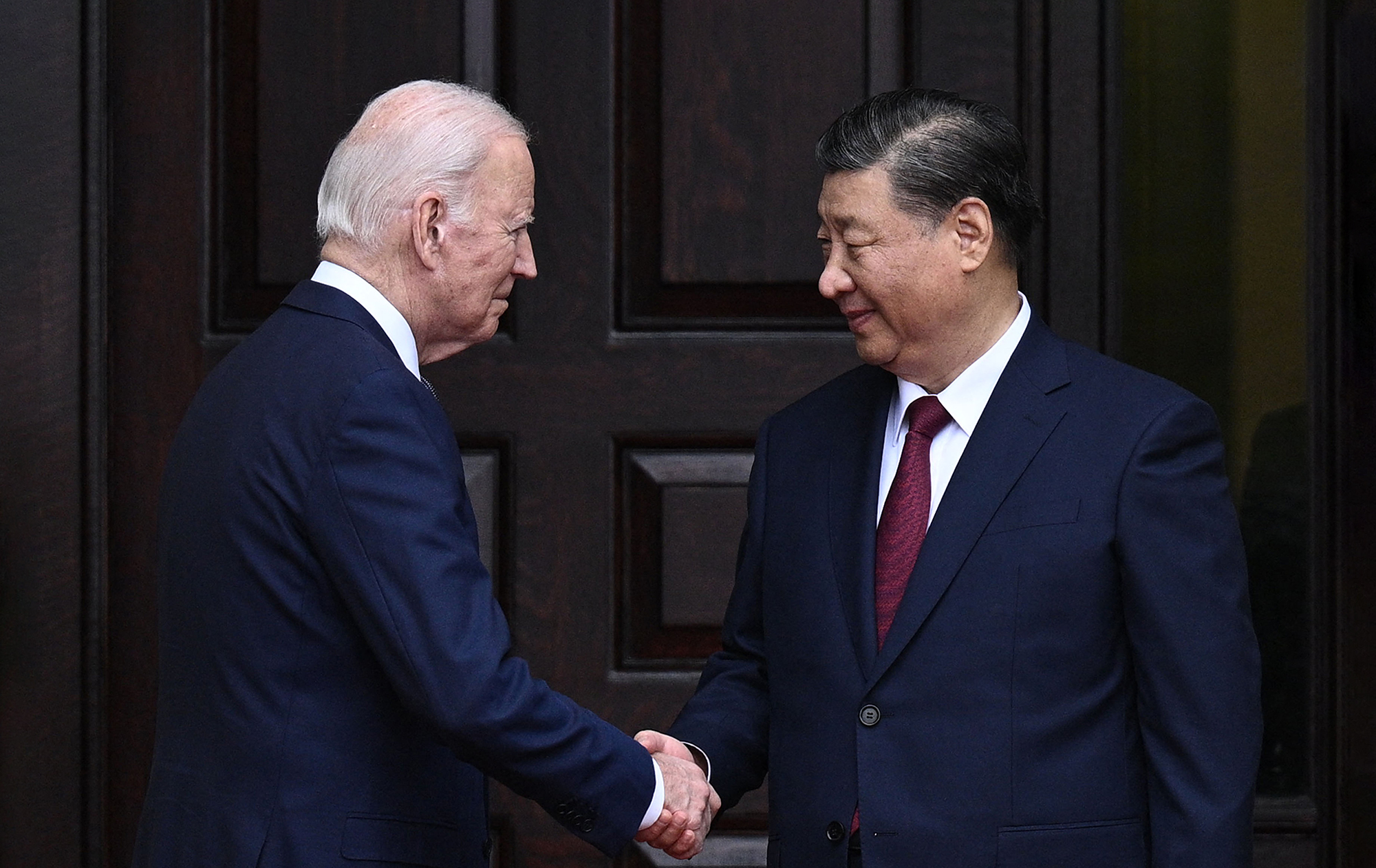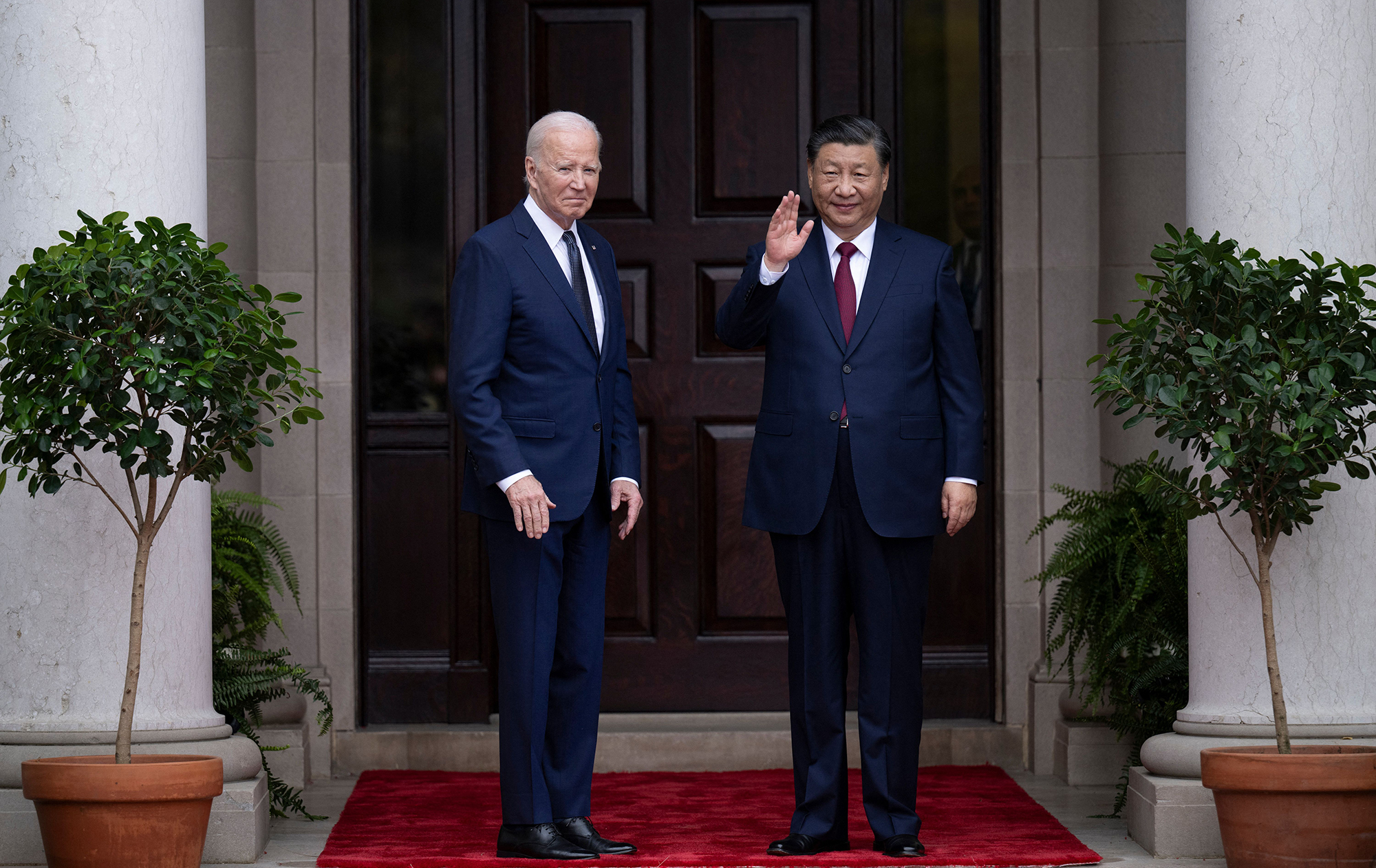San Francisco summit: Western media overview of Biden-Xi meeting
 Photo: Biden-Xi meeting is perhaps the main geopolitical event of the year (Getty Images)
Photo: Biden-Xi meeting is perhaps the main geopolitical event of the year (Getty Images)
The meeting between U.S. President Joe Biden and Chinese counterpart Xi Jinping, as expected, did not lead to a breakthrough. The parties agreed to restore contacts and fight the flow of synthetic drugs, but they did not converge on positions about Taiwan and, it seems, hardly discussed the Russian-Ukrainian war.
To prepare the overview, the following sources were used: The New York Times, The Washington Post, CNN, The Wall Street Journal, Bloomberg, BBC, and The Guardian.
The New York Times: Almost nothing but promises to talk
After four hours of negotiations, Biden announced two important agreements: the restoration of military communication lines and the fight against the flow of fentanyl (a synthetic drug linked to an increasing number of overdose deaths in the U.S.) from China.
However, overall progress is minimal, especially on issues that bring both countries to the brink of conflict. Basically, the parties agreed to continue contact and always be ready to communicate during crises.
Biden tried to show respect, and Xi responded with courtesy, emphasizing that "planet Earth is big enough for both superpowers, they are different but have to rise above differences." The usual diplomatic nuances were disrupted by Biden's statement calling Xi a "dictator in the sense that he controls a communist country."
Leaders mostly reiterated old positions on Taiwan. Xi is concerned that future elections may activate the issue of the island's independence, which is a red line for Beijing. Biden wants to establish military contacts to prevent conflict. Xi's reaction is unclear.
 Photo: Biden and Xi had two agreements (Getty Images)
Photo: Biden and Xi had two agreements (Getty Images)
China also committed to regulating the production of fentanyl precursors, but it had made such commitments before. The technological race was discussed, with Xi complaining about restrictions on the export of computer chips necessary for modern weapons, surveillance systems, and artificial intelligence.
In San Francisco, there were fewer contact points than a few years ago when meetings often led to joint actions. The North Korea issue was not discussed, and Biden's attempt to persuade Xi to help contain Iran did not receive immediate agreement.
There was a brief discussion of aggressive actions, such as the interception of American planes and confrontation in disputed waters near the Philippines and in the South China Sea. When Biden asked about military activity near Taiwan, the Chinese leader questioned why the U.S. continues to arm the island and urged to stop. According to NYT, Washington is likely to increase shipments based on lessons learned from the Russian invasion of Ukraine.
Biden did not mention China's partnership with Russia, but there was discussion of the growth of the nuclear arsenal. However, China refuses to engage in negotiations on nuclear weapon control without reaching parity with the arsenals of the U.S. and Russia.
The Washington Post: China sees absolute success for mediocre results
After the meeting, Xi and Biden demonstrated more warmth than a year ago in Bali. The Chinese leader called their relations the most important in the world, adding that Washington and Beijing need to set an example of cooperation between major powers.
However, some coolness stays. When asked if he trusts Xi, Biden replied with the old saying "trust, but verify." Despite differences, both have a reason to try to melt relations. The U.S. president has long feared that a mistake could lead to an escalation that nobody wants. Meanwhile, China has taken note of the strengthening of U.S. partnerships with Japan, Australia, India, and Vietnam, feeling threatened by them.
From China's perspective, U.S. military aviation flights infringe on its interests in the Asia-Pacific region. From the U.S. perspective, China's military interceptions have become increasingly risky. At a dinner with business representatives, Xi proposed a hand of friendship to the American people, criticizing the Biden administration for calling Beijing a strategic threat.
"If one sees the other side as a serious geopolitical problem and a growing threat, it will only lead to disinformed politics, wrong actions, and undesirable results," he said.
A few days before the meeting, Chinese state media showed a warmer approach to the U.S., which is a noticeable shift from the merciless criticism. For example, the Guancha news website presented the increase in passenger flights as Washington's willingness to take the first step to restore relations. In adopting the new course, Beijing is making clear that more frequent dialogue will make cooperation possible despite competition.
WP devoted a separate publication to the reaction of the Chinese media. According to their version, the meeting was an absolute success. The change of mood in the state media sent social networks into a frenzy. For example, one of the popular posts on the Weibo platform said that the "vibe between the U.S. and China is as if a couple in an arranged marriage unexpectedly fell in love." The post has now been deleted.
CNN: Xi sent a positive signal but what comes after the words about the dictator?
Xi sent a signal of a change in China's tone towards the U.S. However, whether it will lead to a strong shift in the debatable relationship depends on the reaction to Biden's statement about a dictator. China's Ministry of Foreign Affairs representative Mao Ning called the statement "extremely wrong and irresponsible political maneuver."
"It should be noted that there will always be people with covert motives who try to undermine Sino-American relations. They will not succeed," she added.
It's unclear if there will be any further reaction. For now, China calls the negotiations positive and comprehensive. The positive coverage of the meeting dealt a blow to anti-American rhetoric that fueled Chinese nationalism, and the warm reception in San Francisco was crucial for Xi.
 Photo: The meeting in San Francisco took place in a friendly atmosphere (Getty Images)
Photo: The meeting in San Francisco took place in a friendly atmosphere (Getty Images)
The Chinese leader wanted to demonstrate his leadership in international affairs to his domestic audience, highlighting the high regard he has in the U.S. and asserting equality with Biden. China's Foreign Minister Wang Yi highlighted some of these views during the press conference. According to him, yesterday's meeting was the biggest event on the world stage.
CNN notes that even in areas where the parties reached an agreement, there remains delicate ground. China's statement on the restoration of military communications mentioned that they would be restored "on the basis of equality and respect." This implies that in the future, if Beijing is dissatisfied with something, it may again announce the suspension of dialogue and blame the U.S., undermining the foundation of the negotiations. Relations may not worsen significantly next year, but a substantial warming is unlikely in the near future.
The Wall Street Journal: Biden and Xi tamed anger for stabilization
The results of the summit in San Francisco are likely to face pressure because of differences regarding future elections in Taiwan and the blockade of Philippine (a U.S. ally) ships by the Chinese fleet. Both leaders also disagreed on the Israel-Hamas war. While Xi pointed out the unacceptability of the U.S. and China "turning their backs on each other," he also warned against any steps that threaten Chinese interests.
Washington and Beijing find themselves in different camps in the war between Russia and Ukraine, as well as the conflict between Israel and Hamas. According to a White House representative, Biden made it clear that he is concerned about the situation in Ukraine, opposes the supply of Chinese weapons to Russia, and requested help in convincing Iran to refrain from steps that could lead to escalation in the Middle East. In response, Xi demanded a demonstration of support for the "peaceful reunification" of China with Taiwan.
Yesterday's summit is likely to be the last personal meeting before the start of the U.S. presidential campaign in 2024. China could become a hot topic in the campaign, reinforcing the need for high-level contacts to stabilize relations.
Bloomberg: Few wins, but hopeful prospects
Joe Biden and Xi Jinping bet that a few small victories would curb tensions between the U.S. and China, which worry neighboring countries and threaten global economic growth. Expectations for the meeting were low due to deep differences in trade, Taiwan, and human rights, and even subtle achievements were hard-fought.
"We are in competitive relations. But my duty is to make them rational and manageable so that it does not lead to conflict," noted Biden.
The lack of progress on more significant issues, such as restrictions on microchip exports, tariffs, or tensions in the South China Sea, where provocative incidents happened, indicates that much more needs to be done. Xi did not receive the main thing – agreements that would help support an economy trying to recover from the consequences of the COVID-19 pandemic. Instead, he directly appealed to the leadership of American companies, seeking to attract foreign capital.
Biden's words, calling Xi a dictator, signaled that internal pressure in the U.S. continues to influence relations with China. Next year's elections and criticism from Republicans, who speak of Biden's weakness on the China issue, allow Xi to use it to his advantage. According to polls, a record number of Americans consider the rise of China a threat to U.S. interests.
Xi Jinping has not yet achieved another important goal: to shift relations from a competitive approach, which Biden continues to use.
BBC: Four key findings of Biden and Xi's meeting
The media highlights four key results of the summit in San Francisco.
Shared stance on climate. The U.S. and China, the largest sources of carbon dioxide emissions, agreed to combat climate change but did not commit to abandoning fossil fuels. They agreed to cooperate to slow down methane emissions and support global efforts to transition to renewable energy. Experts see that as a significant development ahead of the COP28 climate conference in Dubai at the end of November.
Restriction of fentanyl flows. The U.S. and China agreed to cooperate in combating illegal drug trafficking. In addition, Beijing promised to take measures against chemical companies to stop the flow of illegal fentanyl. This powerful synthetic opioid caused the death of about 75,000 Americans last year. However, it is unclear how China will pursue these companies, and it may continue to use this card as a tool for broader diplomacy.
 Photo: A breakthrough was not expected, but the fact of dialogue itself is hopeful (Getty Images)
Photo: A breakthrough was not expected, but the fact of dialogue itself is hopeful (Getty Images)
Military dialogue after a tense period. Contacts with the military line were interrupted after last year's visit by then-Speaker of the U.S. House of Representatives Nancy Pelosi to Taiwan. Relations further deteriorated after a presumed spy balloon flew over the entire continental United States and was shot down over the Atlantic.
"During the Cold War, the United States and the Soviet Union always maintained communication between the military to avoid any incidents or misunderstandings that could lead to war between nuclear states. The same must happen in the relations between China and the U.S.," says former U.S. Deputy Assistant Secretary of State Mick Mulroy.
Negotiations are to be continued. The fact that Biden and Xi shook hands is a positive sign and a diplomatic achievement. If they can keep communication, it can be considered a success.
The Guardian: Positions on Taiwan did not converge
The talks between Biden and Xi Jinping did not bring the U.S. and China any closer to resolving the Taiwan issue. The Chinese leader called it potentially the most dangerous issue in the relations between superpowers.
"The American side must stop arming Taiwan and support the peaceful reunification of China. China will reunify, and it cannot be stopped," said Xi, according to the Chinese Ministry of Foreign Affairs.
According to a high-ranking official, there were many more mutual gestures in this meeting than last year in Bali. "They sat only six or seven feet apart (about two meters), and could reach across the table. You could see the expression on the person's face across from you. Biden didn't pull punches; he was respectful but very clear," added the official.
Another White House representative noted that Xi showed a definite interest in stabilizing relations, showed a deep understanding of debates on the China issue in the U.S., and was very sensitive to some of these discussions. In particular, he saw reports of China's alleged plans to take military action against Taiwan in 2023 and expressed irritation, insisting that such plans did not exist.
The agreement on military contacts will need to be solidified in the near future. Over the next few weeks, U.S. Secretary of Defense Lloyd Austin will meet with his Chinese counterpart. They will address operational issues, and military routine questions, and organize interaction at the level of ship captains and other officers.
As for future discussions on artificial intelligence, the negotiations focused on early-stage mechanisms and were far from any joint declarations. At the same time, Biden acknowledged that he did not reach an agreement on the fate of U.S. citizens who were detained or faced travel bans in China.

